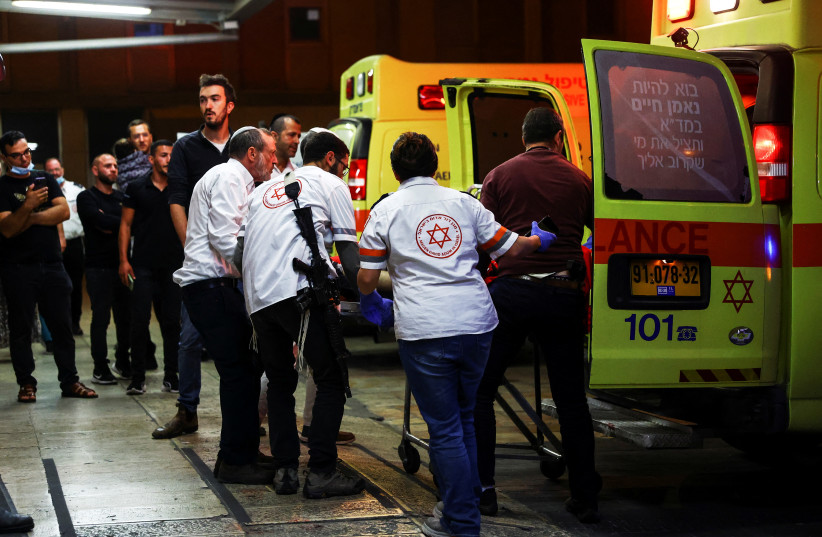Hundreds of family members of the missing, injured, and those who sought updates on the well-being of their loved ones after the sudden attack by Hamas had arrived at Soroka Medical Center in Be'er Sheva the previous Saturday afternoon.
Some of them were residents of the Bedouin communities.
They were also parents of children who had participated in a nature party that was attacked by the terrorists. Meanwhile, several families had been informed of the deaths of their loved ones, and cries of brokenness had been heard at the entrance to the hospital.

"I lost contact with my daughter a few hours ago; she sent me a selfie from the hiding place during the calls," the father of one young girl who had been at the nature party said. "They were asked to disconnect their phones. I didn't know her condition or her whereabouts. They told us they were bringing her to Soroka."
At the entrance to the hospital, dozens of Magen David Adom (MDA) and United Hatzalah ambulances had brought in wounded individuals on stretchers. They left them at the emergency room and then returned to the field.
Weeping family members
In the hospital's corridors and entrances, dozens of worried and weeping family members sat, trying to inquire and receive information about the condition and whereabouts of the wounded.
By that point, more than 280 wounded individuals had been brought to Soroka, including those critically injured. At least 60 were in critical to severe condition, and 44 were in moderate condition. The hospital had expanded the number of stations in the trauma room and opened additional intensive care beds.
J., who worked at the medical center, told Walla!: "I was called in for a shift, and the flow of wounded individuals didn't seem to end. All morning, I had been overwhelmed and talking to friends from the communities near the Gaza border who had been attacked. It was hard to grasp that for three hours, no one had come to help them."
A resident of Rahat had talked about how his family members were affected by one of the incidents in the Gaza envelope. "A woman was killed, and several young people were injured. Some of them had arrived here, and some were still missing. Maybe they were still in the field, or maybe they had been kidnapped. I didn't know what happened to them. They were on their way back from work," he told Walla!.
At the same time, Barzilai Medical Center in Ashkelon had received 182 casualties, including 12 in critical and 6 in severe conditions. Another 107 victims were in moderate condition, and 41 were classified as minor injuries. Asuta Hospital in Ashdod was treating 26 casualties, seven in serious condition, most of whom had gunshot wounds.
